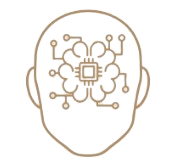



Unveiling the Enemy: Understanding the intricate workings of a pathogen, its vulnerabilities, and how it interacts with the immune system is the first hurdle. This can be like deciphering a complex puzzle, requiring years of meticulous research and experimentation.
Crafting the Perfect Weapon: Designing a vaccine that effectively triggers the immune response while ensuring its safety is a delicate balancing act. Choosing the right antigen (the part of the pathogen that triggers the immune response), selecting the optimal delivery method, and determining the correct dosage are critical decisions with far-reaching consequences.
The Rigorous Trials: Before reaching the general public, vaccines undergo extensive testing in animals and then humans. These clinical trials, with their strict protocols and diverse participant groups, are essential for ensuring the vaccine's safety and efficacy. However, they can be lengthy and expensive, posing a significant hurdle for research, particularly in resource-constrained settings.
The Regulatory Gauntlet: Once clinical trials show promising results, the vaccine must navigate the stringent regulatory gauntlet. Regulatory agencies like the FDA rigorously scrutinize the data, manufacturing processes, and quality control measures to ensure the vaccine meets the highest safety and efficacy standards. This process, while crucial for public safety, can add considerable time and complexity to the development timeline.
The Evolving Enemy: Viruses and bacteria can mutate and evolve, potentially outsmarting existing vaccines. This necessitates constant vigilance and adaptation by researchers, developing new or modified vaccines to keep pace with the ever-changing threats posed by pathogens.
Public Hesitancy and Misinformation: Despite the overwhelming evidence of their effectiveness and safety, vaccines face the unfortunate challenge of public hesitancy and misinformation. Addressing vaccine hesitancy requires effective communication, education, and trust-building initiatives to ensure equitable access to these life-saving interventions.
Financial Maze: Vaccine development is a resource-intensive endeavor, requiring funding for research, clinical trials, manufacturing, and distribution. Securing financial backing, especially for vaccines targeting neglected diseases or those with uncertain market potential, can be a significant challenge, hindering progress and delaying access for those who need it most.
Ethical Considerations: Rapid advancements in vaccine technology like mRNA and AI raise important ethical questions regarding informed consent, equitable access, and potential risks. Addressing these concerns demands transparency, ethical oversight, and prioritizing global health equity to ensure everyone benefits from these innovations.